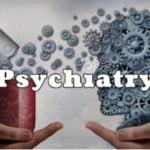A Way Forward
Our current situation presents us with a unique opportunity for learning and growth. It also presents us with dangerous pressures for which we are not prepared. I call it the ‘Pandemic Paradox’, because the very behaviors required for our physical health are wreaking havoc on our emotional and mental health. There is a way forward.
The pandemic is so much more than a disease. It brings about real fears of pain, death and even annihilation, that just months ago would have seemed like fantasy. It has planted an uncertainty in us all, replacing the firm foundation we relied on in our recent past. Will life return to ‘normal’? What will the new normal look like? How will our economy recover and change in the face of this? What are my kids missing out on, and how can I replace those experiences?
The very act of social isolation is at once essential and dangerous. We are isolated not only from germs, but from those very things that defined us. Our jobs, our friends, our travels, our sports, our passions – those things that make us who we are, give us our identities and provide connectedness.
Connection is a Basic Biological Need
Connection is a basic biological need, and when it is removed, it weakens us. The extreme example is the solitary confinement of POWs like John McCain, where isolation was used as a torture. Even in less dramatic situations, isolation breaks the spirit and compromises the mind. Connection is essential to keep us happy, calm, productive, balanced and healthy. In fact, it is not so much that depression leads to isolation, rather it is isolation that leads to depression. This then spurs a vast array of abusive behaviors, including drug or alcohol abuse, spousal or even child abuse. In its mildest form, we feel short fused and drawn to hide in screen time, in compulsive eating or in drinking.
While connection takes many forms, it’s most important is touch. Touch is essential and can’t be supplanted by phone calls or video chats. When we are physically isolated, our active immune response is compromised by a dampening of our T-cell response. This in turn, leaves us less resistant to disease. Mentally, this loss of connection leads to irritability, depression, anxiety, sleep disturbance, lack of focus, hypervigilance, suspiciousness and a return of old traumas and injurious behaviors. We see it all around us – formerly ‘sane’ friends now sharing conspiracy theories on social pages, watching endless streams of dramatic news reports, unable to look away from the minute by minute updates. The lack of connection compromises our critical thinking and robs us of our mental equilibrium. We connect with the dramatic which sends our anxiety higher.
So, what do we do about it at a time when isolation is essential?
These Feelings Are Normal
The solution begins with a re-labeling, a de-stigmatization, of depression and anxiety. Repeat after me: “These are not weaknesses.” Too often we try to hide our dark feelings, when in fact we should honor them as important signals to draw focus to our emotional health. In this unprecedented time, these feelings are ‘normal’ – how could you truly feel otherwise?
This time presents us with a unique opportunity to rebuild our connections with those most important in our lives. We now have time to repair and even recreate relationships that matter. Instead of “riding this out”, we can use this time to make important improvements in our connection to others that will serve our emotional health today and enrich our lives in the long term.
Here are 8 things you can practice now to deepen your connections and combat the negative impacts of isolation.
Let me know how you do!
- Take your emotional pulse 3 times daily, at morning noon and night. Acknowledging your feelings helps you deal with them and not turn them on those you are with. Don’t reach for your phone first thing… spend 5 minutes at bedside breathing and seeking out your feelings. Just be okay with short quiet reflection.
- Invite your partner to become your emotional teammate. Agree to work together in support of each other’s growth through this period.
- Communicate your emotional states in a better deeper way. Figure it out with your partner – share and discuss things openly. It may even be a need for more space – but by sharing it, your partner understands you and you’ve discussed where it’s coming from. This is the kind of emotional communication that strengthens connection.
- Practice ‘deep listening’ and reflecting so the other feels like they are heard and that they are in it with you. This is not a time for solutions or platitudes. You’ll be surprised by the power of being truly understood.
- Show your appreciation by demonstrating and verbalizing the value the other is providing, in ways both big and small.
- Sex. This is your opportunity to re-frame your sexual life together. Try a new approach, where sex becomes a physical conversation and is not goal oriented. You can reinvent sex as an expression of depth, interest, hearing each other, appreciating each other and sharing an intense experience together. Experience tells me that people fall out of intimacy because of fear – not boredom or habituation.
- Make Plans. Answer all the ‘what ifs’ that are causing anxiety for you or your partner. What if I get sick? What if you do? What happens to our kids, our money, our home, etc.
- Accept people as they are during this time. Stress is stirring the pot. They (and you) will have bad moments, and you need to give them (and yourself) a break. Growth comes not from keeping everything perfect and seamless, it comes from building new strengths and repairing when things are not.
Now is the time for rebuilding your connections and strengthening your relationships with those most precious in your world. Here I’ve focused on connecting with your partner, and I’ll follow up with strengthening your relationship with your children to help guide them through this time. Please connect with me and let me know what you are experiencing. Yes, these times are difficult and even painful, but we can use it as a catalyst for growth. Be well.








